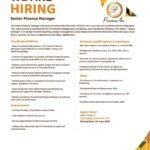Are you are looking for high-paying job opportunities in Australia? Whether you want to relocate to Sydney, Melbourne, or Brisbane, this guide will show you how to land a job in Australia that offers visa sponsorship and the chance to live in one of the most livable countries in the world.
Why Work in Australia?
Australia’s strong economy, high demand for skilled professionals, and streamlined immigration process make it a top destination for US job seekers. With salaries in sectors like engineering, healthcare, and IT exceeding AUD $100,000 per year, it’s no surprise many Americans are exploring work opportunities down under.
High-Demand Jobs in Australia for US Professionals
The Australian labor market currently needs workers in several key industries. Here are the top job categories in 2025:
- Healthcare Professionals (Doctors, Nurses, Aged Care Workers)
- IT and Software Engineers
- Construction and Civil Engineers
- Electricians and Technicians
- Education and Childcare Professionals
- Hospitality and Tourism Workers
Top Cities Offering US Job Seekers Opportunities
These cities are hotspots for employment and immigration:
- Sydney: Home to major employers like Atlassian, Westpac, and Macquarie Group.
- Melbourne: A tech and healthcare hub with companies like CSL and Telstra hiring foreign talent.
- Brisbane: Known for opportunities in construction, engineering, and energy sectors.
- Perth: Offers mining, oil and gas, and engineering roles with high salary packages.
Companies in Australia Hiring Foreign Workers
These companies regularly sponsor skilled foreign workers, including Americans:
- CSL Limited – Biotech and healthcare jobs in Melbourne
- Atlassian – Tech and software engineering jobs in Sydney
- Woodside Energy – Oil and gas jobs in Perth
- ANZ Bank – Finance and banking jobs across major cities
- Ramsay Health Care – Healthcare and aged care jobs nationwide
How to Apply for Jobs in Australia from the US
Here’s a step-by-step guide to increase your chances of getting hired and sponsored for a work visa:
- Update your resume using Australian CV format (focus on skills and achievements).
- Search for job openings on sites like SEEK, Indeed AU, and JobSearch.gov.au.
- Apply directly to companies with a record of hiring foreign workers.
- Prepare for interviews and highlight your international experience and adaptability.
- Work with Australian immigration lawyers to navigate the visa process.
Visas That Allow Americans to Work in Australia
There are several visa pathways that allow Americans to legally work in Australia. These include:
- Temporary Skill Shortage (TSS) Visa (Subclass 482): Requires employer sponsorship.
- Skilled Independent Visa (Subclass 189): Points-tested permanent visa.
- Working Holiday Visa (Subclass 462): For younger US citizens aged 18–30.
Each of these visas has different requirements, but working with a registered migration agent or immigration lawyer can simplify the process.
Top Australian Immigration Lawyers for US Applicants
To boost your chances of success, it’s recommended to consult experienced professionals. Here are trusted immigration law firms that specialize in helping foreign workers:
- VisaPath Australia – Known for skilled migration and employer-sponsored visa services.
- Murthy Immigration Services – US-based firm offering consultation for Australian visa options.
- Australian Migration Lawyers – Full-service firm for work and skilled visas.
How Much Can You Earn in Australia?
Australia offers competitive salaries. Here are average annual salaries (in AUD) for in-demand roles:
- Software Engineer: $100,000 – $140,000
- Registered Nurse: $75,000 – $110,000
- Electrician: $70,000 – $95,000
- Mechanical Engineer: $85,000 – $120,000
Salaries vary by city, company, and level of experience. Most roles also include superannuation and relocation assistance.
Finding a job in Australia as a US citizen has never been easier. With high-demand skills, the right resume, and support from immigration lawyers, you can land a sponsored job and move to Australia in 2025.
Disclaimer
This article is for informational purposes only and does not constitute legal advice. Always consult a registered migration agent for up-to-date immigration guidance.




